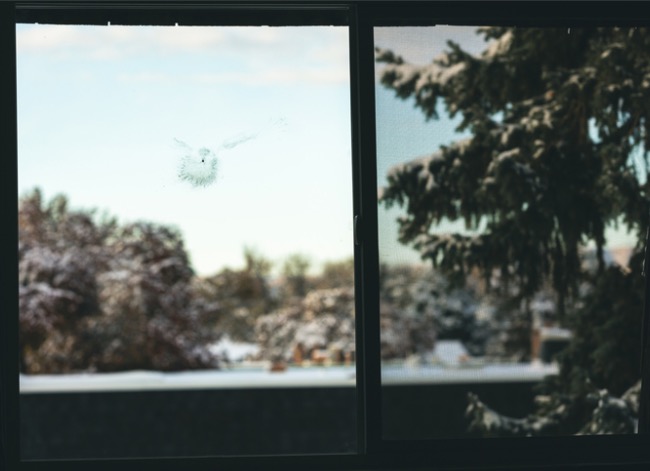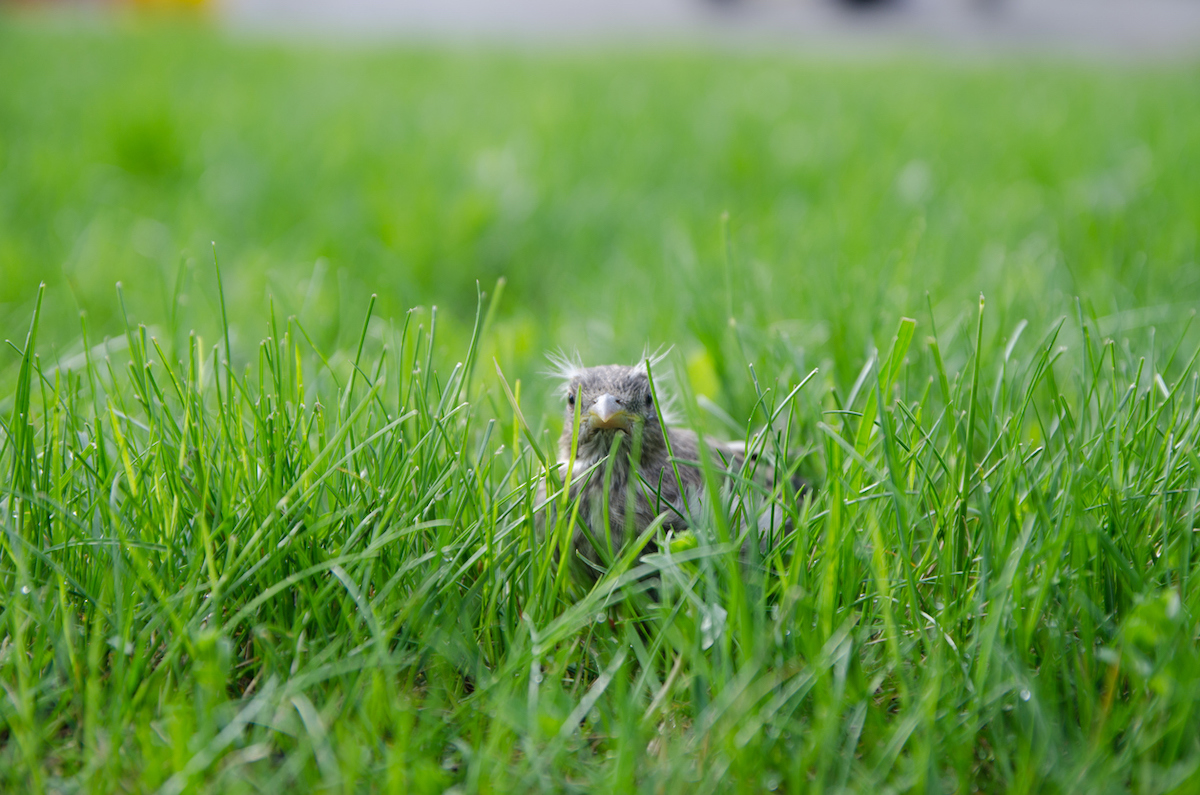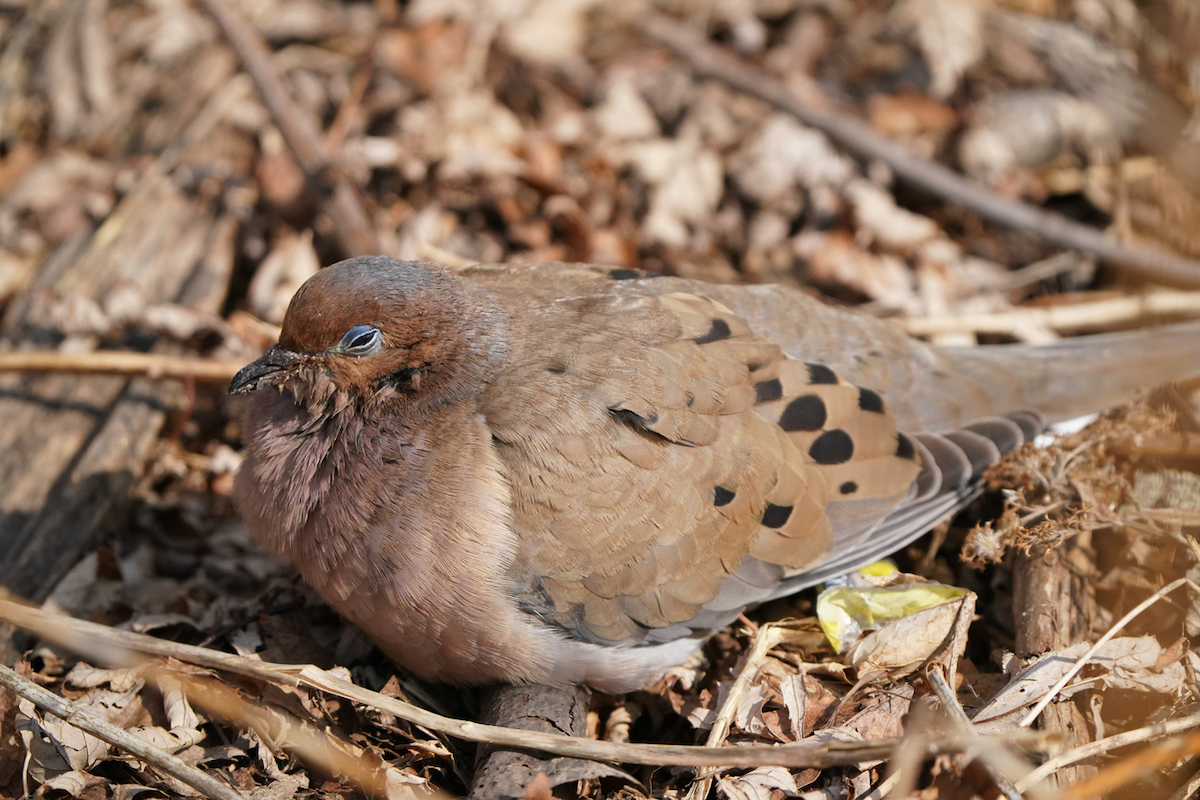

We may earn revenue from the products available on this page and participate in affiliate programs. Learn More ›
Q: My wife and I have windows and sliding glass doors off our deck and have had more than one instance in which birds have flown into our glass windows. What should we do when this happens?
A: While popular belief is that birds fly into windows because they don’t see the glass, it’s actually what they do see in the glass that causes them to keep flying when they should turn in a different direction.
There are a few different reasons for these collisions, depending on the time of day. During the daytime, birds see reflections from trees, bushes, and other vegetation in the yard, which tricks them into thinking that they’re flying into an open space. They may also see their reflection in the window, think it’s an invading bird, and attack it. At night, however, birds are attracted to the light that shines through the glass, and this causes them to fly into the window.
For more bird-friendly windows, make the glass more visible by closing shades, curtains, or blinds. At night, keep blinds closed or turn off the lights. If you have more serious problems with bird collisions, or if you’re building a new home with large windows that may confuse birds, you can try more expensive techniques. For instance, UV-reflective glass is opaque to birds but translucent to humans, or you can angle your windows slightly downward so they won’t reflect the surrounding landscaping or sky.
Sadly, about half of all birds who fly into windows die from their injuries. Even those that manage to fly away die later from internal bleeding or trauma to the brain. But if a bird survives the initial impact, there are actions you can take to treat an injured feathered friend.
RELATED: What to Do If a Bird Flies Into Your House
Find the bird and observe it closely.
Locate the bird’s body. Before moving or physically examining the bird, watch it carefully to determine if it is hurt or not. In some cases, the bird may simply be stunned and just needs a little time to recover before it can fly away. If the bird is unconscious or flopping around, it may be injured and need treatment.

Try to determine if it is injured.
You don’t need to be a veterinarian to check a bird to see if it’s injured. Put on gloves and then gently pick up the bird or carefully wrap it in a towel. Examine it, checking for cuts or other signs of injury. Look to see if the bird is holding its wings properly or if one is dangling. Also, check to see if the bird’s eyes appear to be functioning normally. If it has any visible broken bones or wounds, wrap them in gauze and contact a wildlife rehabilitation service as soon as possible.
Keep the bird safe.
It’s best not to move a bird after a collision. If, however, predators are lurking or the temperature is too cold, it may be necessary to do so. Find a bag or box that’s large enough to accommodate the bird’s wingspan and place the bird inside, being careful not to touch it with bare hands. Make sure the bag or box is loosely closed or has plenty of air holes to promote ventilation. The darkness will keep the bird calm when it wakes up, which should happen in a matter of minutes if the bird is not seriously injured.
RELATED: The Best Bird Deterrents

Start the healing process and give it enough recovery time.
Keep the bird in a warm, dark place away from kids and noise. Check on the bird periodically but be careful when making your assessment. Accidentally releasing an injured bird indoors could cause it to panic and injure itself more severely. Also, don’t attempt to feed the bird or give it water. This could potentially cause harm, and the bird won’t need feeding in the short time it takes to recover. If the bird doesn’t recover after a few hours and is still breathing, contact a wildlife organization for help.
Once it’s healed, release the bird back to the wilderness.
If the bird appears to have recovered, return it to the site of impact so it can more easily identify where it is when you release it. If the area isn’t safe, find a location nearby to release the bird. Once free, the bird should quickly fly away. If the bird is not able to fly away, contact a local wildlife rehabilitation center immediately. Because it’s illegal to handle a migratory bird, it’s important to hand the bird off to professionals if it doesn’t recover within an hour or so.
There’s a good chance the bird will succumb to injuries that weren’t immediately visible when you first examined it. If the bird does die, you’ll need to dispose of the body in a sanitary manner by sealing it in a plastic bag and placing it in a trash container with a lid.

RELATED: This Techie Bird Feeder is the Backyard Addition You Never Knew You Needed
